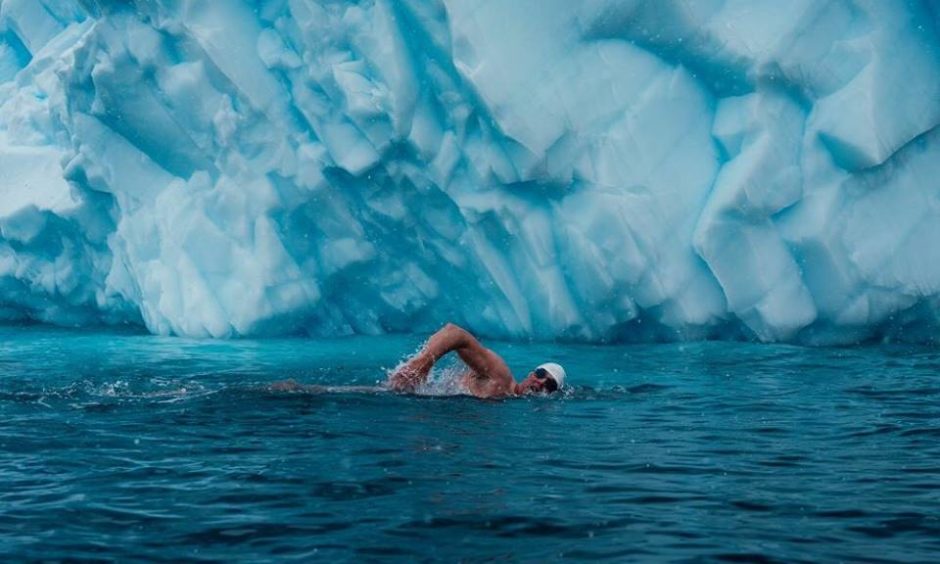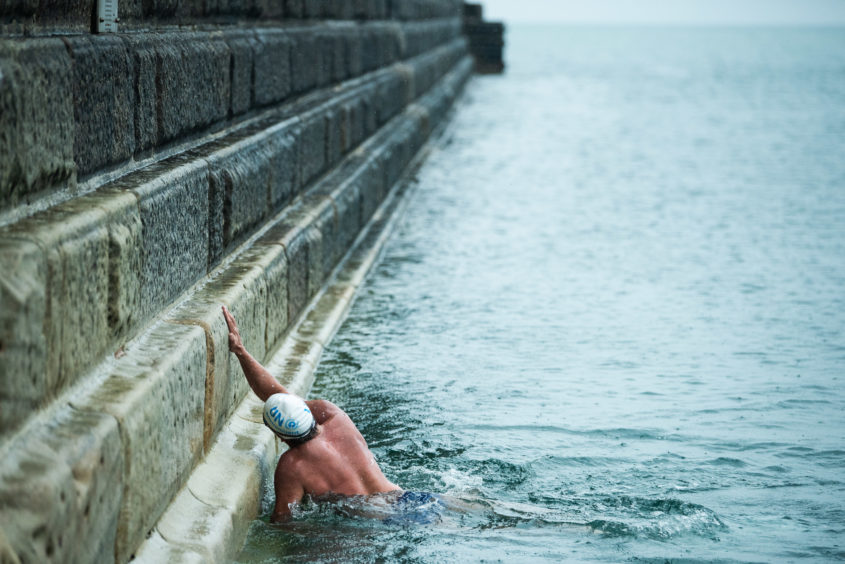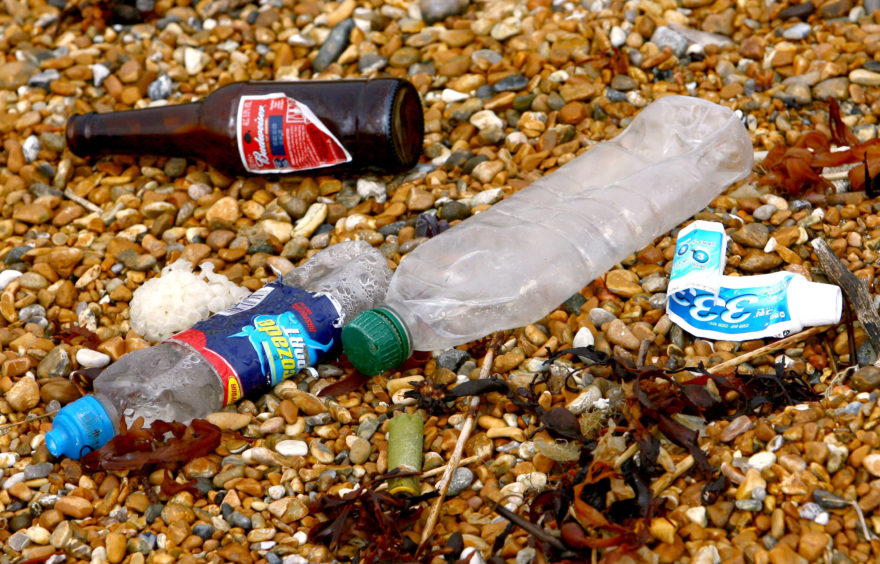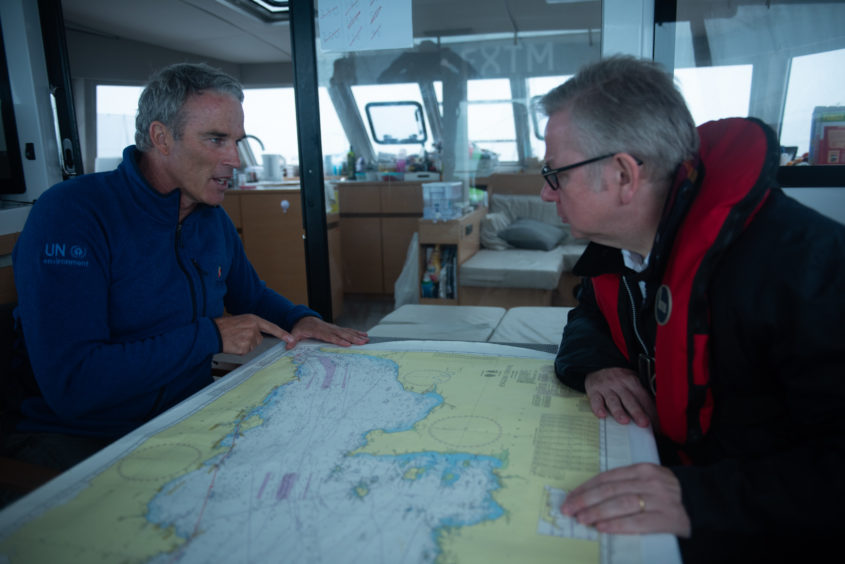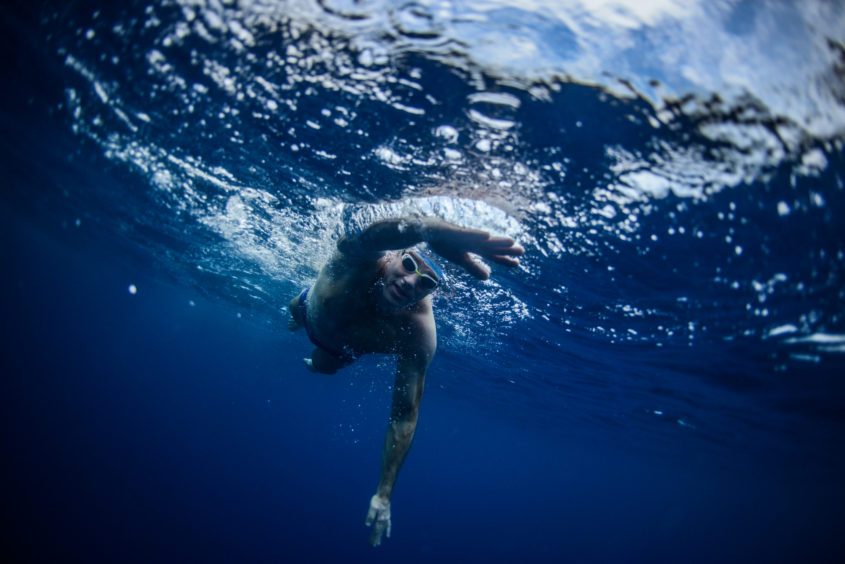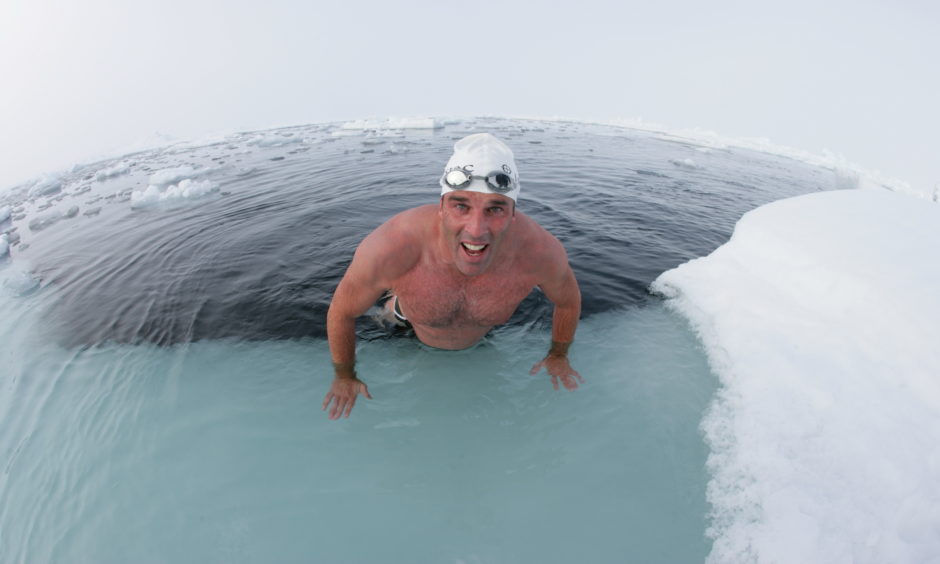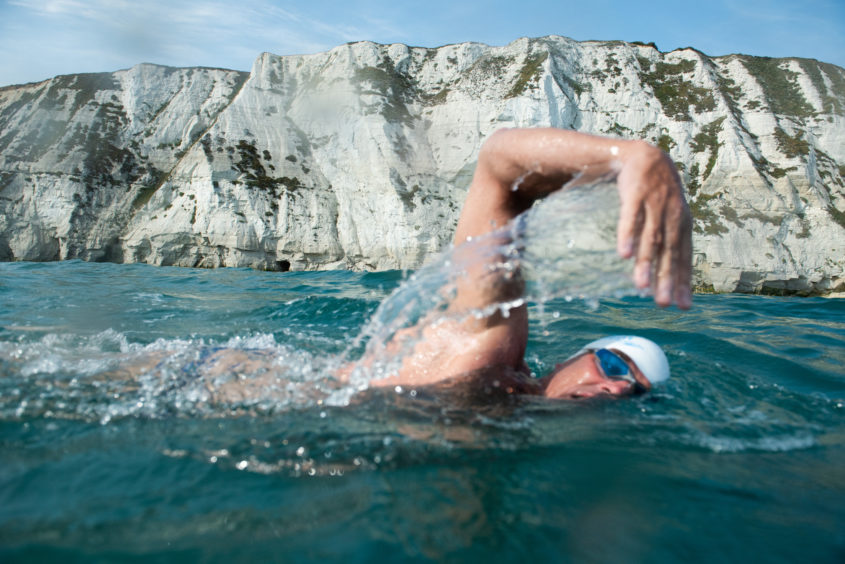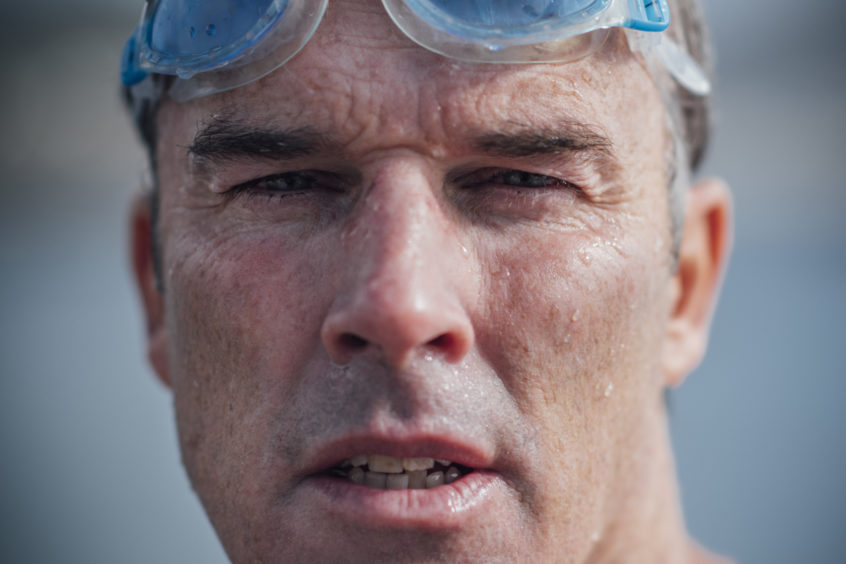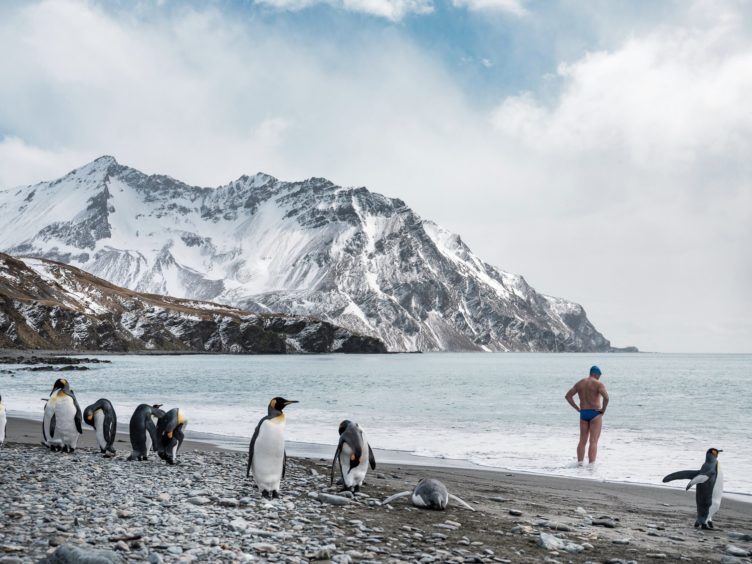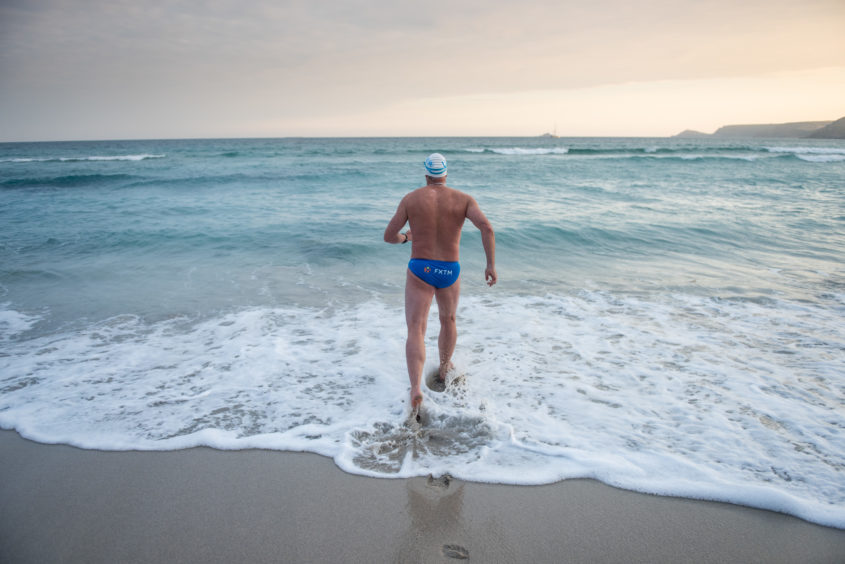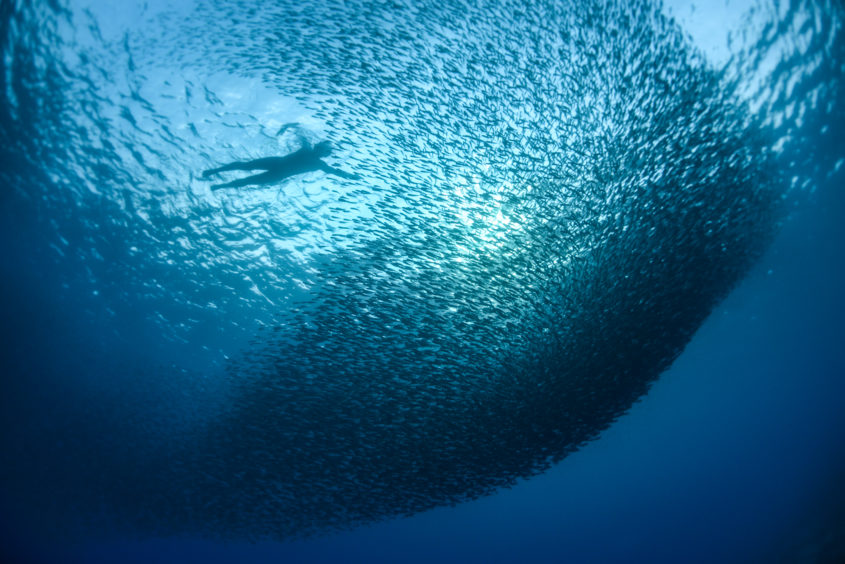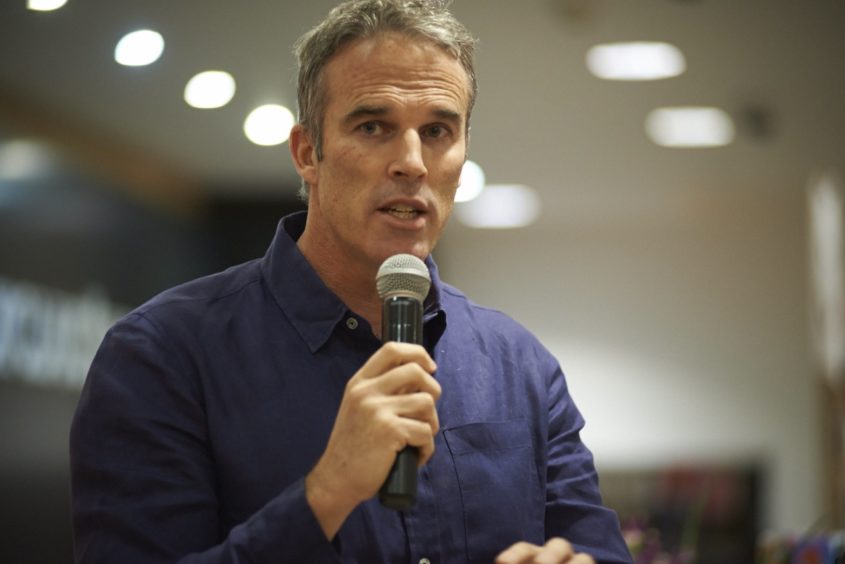Michael Alexander speaks to international endurance swimmer and maritime lawyer Lewis Pugh as he prepares to bring his oceans advocate message to Perth.
When British-South African endurance swimmer and environmental campaigner Lewis Pugh set himself the challenge of swimming the length of the English Channel from Land’s End to Dover last year, he made himself three promises after considering the old saying that most crossings are won or lost before the first stroke is taken.
The first promise was that he would leave all his doubts at the start in Cornwall.
The second promise was that he would swim 10km every day.
The third promise he made was that if it was too dangerous to swim on a specific day, the following day he would do a double session.
“These three promises steered me through the toughest swim of my life,” he said.
“I swam through storms, through injury, and through a number of large swarms of jellyfish.
“I was swept backwards around The Lizard, and I battled for three days to round Dungeness.
“Finally after 49 days I touched the harbour wall at Dover.”
The aim of Lewis’ 528km swim was to call for 30% of the world’s oceans to be fully protected by 2030.
One of his responsibilities as the United Nations Patron of the Oceans is to hold to account those nations which are failing to properly protect their waters and their wildlife.
It was for this reason that he chose to swim along the south coast of England.
During his 49-day swim, all he saw were a few birds, a pod of dolphins in Lyme Bay, one turtle off Portland and little else.
On every beach he visited there was plastic pollution. “It’s as if we have hoovered up the fish and thrown in our plastic,” he said.
While barely a week goes by these days without further awareness of the scale of global plastic pollution and the other environmental problems that threaten the very future of the planet, Lewis says the UK deserves praise for an “astonishing turnaround” over the past 12 months which, he said, means that in one year, the UK is now leading the world in ocean protection.
“Since I completed my swim, the government has, with the encouragement of all political parties, created 41 new marine conservation zones around England, fully protected a further 264,000 square kilometres of sea around its territories in South Georgia and the South Sandwich Islands, and earmarked over 400,000 square kilometres of sea around Ascension Island for full protection,” he said.
“The government has also agreed to review the level of existing protections in waters around England, with a view to increasing the amount of ‘Highly Protected’ areas.
“I remain hopeful they will do the same with the 77% of waters around South Georgia and the South Sandwich Islands which are still unprotected as this is one of the most important wildlife hotspots on the planet.”
In addition, he praised the government’s ban of some single use plastics, the government’s commitment that the UK will champion on a global target of protecting 30% of oceans by 2030, along with the Theresa May government’s “pioneering” commitment that the UK will reduce its carbon emissions to “net zero” by 2050.
The Scottish Government, meanwhile, has set faster targets of net zero carbon emissions by 2045. These targets will require the country to completely change the way it does business.
However, the UK still exports over two thirds of its plastic to developing countries and the world is now in a “race against time” to tackle an overwhelming environmental crisis.
It’s no surprise then that Lewis has also thrown down the gauntlet to the new Boris Johnson government, currently pre-occupied with Brexit.
“The science is clear,” he said. “If we do not protect our oceans and tackle the climate crisis head-on, we will face an existential threat to life on Earth. It is that simple.
“For the new Prime Minister, this will present a stark reality. Brexit may be the topic of the moment, but protecting the environment is the defining issue of our generation. Consequently, every day needs to be a day of action.”
The issues will be at the heart of Lewis Pugh’s narrative when he speaks for the Royal Scottish Geographical Society in Perth on Thursday September 12 – an occasion that will also see him presented with the society’s prestigious Mungo Park Medal.
The ‘Achieving Your Impossible: No Challenge too Great’ talk at Perth Concert Hall will profile some of the amazing challenges the so-called “Sir Edmund Hillary of swimming” has pioneered over 32 years in the most vulnerable ecosystems on Earth while campaigning for their protection.
The first person to complete a long-distance swim in every ocean of the world, he is perhaps best known for the swim he did in 2007 when he became the first person to swim across the North Pole.
This record-breaking and breath taking 1km swim across open sea at the Geographic North Pole was undertaken to highlight the dramatic melt of Arctic sea ice as a result of climate change.
Then in 2010, he nearly drowned as he battled air sickness and freezing temperatures swimming across Pumori Lake, 5,300m up the Khumbu Glacier in Mount Everest, to draw attention to the melting of the glaciers in the Himalayas and the impact the reduced water supply could have on peace in the region.
He has been instrumental in protecting over two million square kilometres of vulnerable ocean – an area equivalent to the size of Western Europe. And of course there was his record breaking English Channel swim last year.
But his love of the ocean and setting himself tough – some might say mad – challenges goes back to his teens when he stepped outside his “bubble”.
Born in Plymouth, the now 49-year-old’s father Surgeon Rear Admiral PD Gordon Pugh was a surgeon in the Royal Navy while his mother was a senior nursing sister in Queen Alexandra’s Royal Navy Nursing Service.
Growing up in Devon, he and his family emigrated to Cape Town, South Africa, when he was 10.
While he describes his formative years in South Africa as idyllic and “shielded from the ugliness of apartheid”, it was while sitting in his whites-only classroom overlooking the Atlantic Ocean one day that he had the idea of swimming across to Robben Island where Nelson Mandela and other black political prisoners were imprisoned.
Eventually getting permission from prison officials, the then 17-year-old completed the swim through shark-infested waters in 2.5 hours – just a month after his first proper swimming lesson.
He went on to read politics and law at the University of Cape Town and, in his mid-20s, he read international law at Jesus College, Cambridge.
He worked as a maritime lawyer in the City of London – during which time he served as a reservist in the British Special Air Service.
But at the same time he was pushing himself further with more extreme swims. He was the first person to swim around Cape Agulhas – the southernmost tip of Africa – in the Cape of Good Hope and the first to do a 62-mile swim around the Cape Peninsula. He was also the first person to swim across an African Great Lake, namely Lake Malawi.
It was in 2003 after a trip to the Arctic and being inspired by intrepid stories of legendary British explorer Sir Edmund Hillary, however, that he turned his attention to cold water swimming.
Undertaking the challenges in accordance with Channel Swimming Association rules, in just a pair of Speedo swimming trunks, cap and goggles, he became the first person to swim around the infamous North Cape around the northernmost point in Europe.
The following year he became the first person to swim down the entire 127-mile length of Sognefjord in Norway over 21 days.
In 2005 he broke the world record for the farthest-north long-distance swim by undertaking a 1 km swim at 80 degrees north around Verlegenhuken, the northern-most cape in Spitsbergen.
He followed that five months later by breaking Lynne Cox’s world record for the farthest-south long-distance swim by undertaking a 1 km swim at 65 degree south at Petermann Island off the Antarctic Peninsula. The list goes on…
But he plays down the suggestion by Professor Tim Noakes, a sports scientist from the University of Cape Town, that he has the ability to raise his core body temperature by nearly 2 °C in anticipation of entering freezing water. The professor coined the phrase “anticipatory thermo-genesis” (the creation of heat before an event) to explain it. But Pugh believes it is a response to fear.
In Perth, he will share his insights on the mind-set, teamwork and leadership skills necessary for any major undertaking.
The most crucial success factor, he says, is to have a driving purpose, which for him is to protect our planet’s threatened oceans.
Noting that all eyes will be on the UK when the UN Climate Change Conference is held in Glasgow next year, he said governments will need to find their own sense of purpose and courage to answer that critical question: “Is what we are doing today an adequate response to the climate emergency?”
He added: “Despite the rapid progress made over the last year, the answer is clearly not!”
*Lewis Pugh, ‘Achieving Your Impossible: No Challenge Too Great’ is at Perth Concert Hall for the Royal Scottish Geographic Society on Thursday September 12 at 7.30pm. For ticket information go to www.horsecross.co.uk
